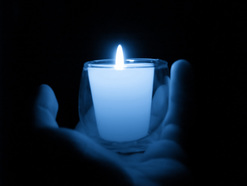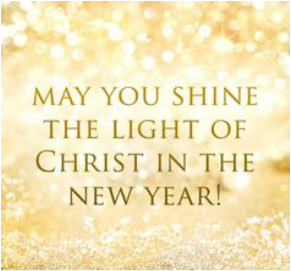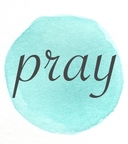Family with Teen(s)
For this month we will be breaking each section down based on the seasons, and upcoming holildays of Advent, Christmas and the New Year. Make sure you stop in during each part of this month to check out the resources for the corresponding time of year.
Advent

Advent Prayer of Light
Son of God,
You are the light of the world.
Shine your light on all our choices this day.
Create in us the ability to let your light shine forth for others.
We ask this in the name of the Father, Son, and Holy Spirit.
Amen.
OR
Advent Prayer
Lord Jesus,
Master of both the light and the darkness, send your Holy Spirit upon our preparations for Christmas.
We who have so much to do seek quiet spaces to hear your voice each day.
We who are anxious over many things look forward to your coming among us.
We who are blessed in so many ways long for the complete joy of your kingdom.
We whose hearts are heavy seek the joy of your presence.
We are your people, walking in darkness, yet seeking the light.
To you we say, "Come Lord Jesus!"
Amen.
Son of God,
You are the light of the world.
Shine your light on all our choices this day.
Create in us the ability to let your light shine forth for others.
We ask this in the name of the Father, Son, and Holy Spirit.
Amen.
OR
Advent Prayer
Lord Jesus,
Master of both the light and the darkness, send your Holy Spirit upon our preparations for Christmas.
We who have so much to do seek quiet spaces to hear your voice each day.
We who are anxious over many things look forward to your coming among us.
We who are blessed in so many ways long for the complete joy of your kingdom.
We whose hearts are heavy seek the joy of your presence.
We are your people, walking in darkness, yet seeking the light.
To you we say, "Come Lord Jesus!"
Amen.
Christmas
You can't think of Christmas without bursting into a carol or two so let's pray with song. "Joy to the World" is here to remind us of the wonderful joy we experience at Christmas every year! The lyrics follow the video if you want to sing along, or find words and phrases that have special meaning for you this year.
|
"Joy To The World"
Joy to the world! Joy to the world! Oh woah Joy to the world! The Lord is come Let earth receive her King! Let every heart prepare Him room And heaven and nature sing And heaven and nature sing And heaven, and heaven and nature sing Joy to the world! Joy to the world! Oh Joy to the world! the Savior reigns Let men their songs employ While fields and floods Rocks, hills and plains Repeat the sounding joy Repeat the sounding joy Repeat, repeat the sounding joy |
Joy to the world then we sing
(Let the earth receive her King!) Joy to the world then we sing (Let the angel voices ring) Joy to the world then we sing (Let the men their songs employ) Joy to the world then we sing (And repeat the sounding joy) Ohh He rules the world with truth and grace And makes the nations prove (and makes the nations prove) And glories of His righteousness And wonders of His love And wonders of His love And wonders of His love And wonders, wonders of His love And wonders, wonders of His love Joy to the world then we sing (Let the earth receive her King!) Joy to the world then we sing (Let the angel voices ring) |
New Year

A New Year's Prayer
Lord, You make all things new
You bring hope alive in our hearts
And cause our Spirits to be born again.
Thank you for this new year
For all the potential it holds.
Come and kindle in us
A mighty flame
So that in our time, many will see the wonders of God
And live forever to praise Your glorious name.
Amen
OR
Dear God,
May my life be of use to You this year.
May my talents and intelligence
help heal the world.
May I remember how much I have
by remembering how much I have to give.
May I not be tempted by smaller things
but serve my larger mission of forgiveness and love.
Thus shall I be lifted, God,
and know joy this coming year and beyond.
Bless me and work through me
to bless the entire world.
Amen
Lord, You make all things new
You bring hope alive in our hearts
And cause our Spirits to be born again.
Thank you for this new year
For all the potential it holds.
Come and kindle in us
A mighty flame
So that in our time, many will see the wonders of God
And live forever to praise Your glorious name.
Amen
OR
Dear God,
May my life be of use to You this year.
May my talents and intelligence
help heal the world.
May I remember how much I have
by remembering how much I have to give.
May I not be tempted by smaller things
but serve my larger mission of forgiveness and love.
Thus shall I be lifted, God,
and know joy this coming year and beyond.
Bless me and work through me
to bless the entire world.
Amen
Advent
The "Advent Conspiracy" project has a very strong message that we all can realate to as we are getting older. Advent is lost in the scramble after Black Friday that doesn't seem to stop until we get a breath of fresh air in 2017. Watch this video and visit http://www.adventconspiracy.org/ to learn more about the example Jesus gives us at Christmas for how we should live our Advent.
Christmas
This reflection on Christmas invites you to not miss the big picture of the Christmas season - PEACE!
New Year
5 Things You Might Not Know About January 1st
If someone asked you about the significance of the January 1, what would you say? The first thing that would probably come to your mind would be that it is New Year’s Day, but If you’re really up on your Catholic Faith, you would remember that the Church honors Mary as Mother of God on that day.
Here are five things that you might not know about January 1:
So, when we wake up on New Year’s Day, we can go ahead and turn the calendar page and get excited over the prospects of a brand new year. But far more than that, we can rejoice because we are deeply loved by a Mother who is, not only Mother of God but also our Mother.
- See more here.
If someone asked you about the significance of the January 1, what would you say? The first thing that would probably come to your mind would be that it is New Year’s Day, but If you’re really up on your Catholic Faith, you would remember that the Church honors Mary as Mother of God on that day.
Here are five things that you might not know about January 1:
- January 1 is the Solemnity of Mary, Mother of God. A solemnity is a liturgical celebration that is different from feast days and memorials. All three honor the Saints or special aspects of Jesus and Mary, but solemnities are the highest degree of celebration and are reserved for the most important mysteries of the Faith. Solemnities include Easter, Pentecost, the Immaculate Conception, the main titles of Jesus, and Saints that are of particular importance in salvation history. Solemnity masses have the same basic elements as Sunday ones, including all three readings, prayer of the faithful, the Creed, and Gloria. Some solemnities are also holy days of obligation but these vary from country to country according to the standards set by the bishops’ conferences. In the United States, January 1 is a holy day of obligation.
- The Solemnity of Mary, Mother of God, is celebrated on the Octave of Christmas. Octave comes from the Latin word for “eight,” and is the name for the ancient Church practice of celebrating Christmas for eight days. The tradition dates back to the Old Testament, when the Hebrew people observed many of their feasts for a period of eight days. For example, the “Feast of Tabernacles” and the “Dedication of the Temple.” Later, the Roman Emperor Constantine added the celebration of the dedication of basilicas to this tradition. In the past, there were several feasts that were celebrated with octaves; since Vatican Council II, only Easter and Christmas have octaves.
The reason the Hebrews celebrated for eight days was that life was so hectic for them and families struggled under pressures and divisions caused by pagan traditions; the Church granted a period of eight days, so that families could more fully take in the importance of these liturgical feasts. With Christmas bearing the importance that it does, it’s no wonder the Church allows us eight days of special contemplation (although traditionally the Christmas season ends with the Baptism of Jesus, celebrated on January 8 this year). - Mother of God, or in Greek Theotokos, is the highest title ever to be given to Mary. She was given this title during the Council of Ephesus in 431 AD. The Council taught that Jesus’ humanity and divinity could not be separated, and therefore Mary rightly deserved the title Mother of God. Mary brought Jesus into the world, and so she truly is God’s mother, since Jesus is the second person of the Trinity.
- The Solemnity of Mary, Mother of God, is the oldest feast of Mary celebrated in the Catholic Church.
- Mary not only is Mother of God but she also is truly your mother. When she said yes to Gabriel at the Annunciation, she said yes to being Jesus’ mother, and at that same moment gave her yes to becoming our spiritual mother.The Catechism of the Catholic Church teaches that Mary is our mother because of grace. Mary’s role as our mother began at the Annunciation and continues for all Eternity. Because she loves her Son so very much, she loves us tenderly as members of his Mystical Body.
So, when we wake up on New Year’s Day, we can go ahead and turn the calendar page and get excited over the prospects of a brand new year. But far more than that, we can rejoice because we are deeply loved by a Mother who is, not only Mother of God but also our Mother.
- See more here.
Advent
In addition to the call in the ""Advent Conspiracy" video (which I highly recomend doing!), the following article from Lifeteen has a bunch of tips on how to celebrate the Advent season!
11 Life Hacks for Advent
Christmas
Want to give or recieve a gift that can lead the teen in your life closer to God? Here is a list of some ideas that you could consider gifting, or asking for, this Christmas:
- Catholic Youth Study Bible - This is the Bible that we use with all of our youth ministry groups! Take one homse today! - Catholic Youth Bible on Amazon
- Daily Devoional Book - Jesus Calling is great for young men and women
- Journal - "Do small things with greatt love"
- Man of God Journal
- Color the Psalms - Adult Coloring Book
- Love, Peace, Hope Bracelet
- In Christ Alone Wall Art
- Check out some of these musicians and buy some of thier music for your home
New Year
The great thing about walking with God in life is that there is always the opportunity to start anew - God always offers us a new day and a new dawn, no matter what has gone before. At the start of the New Year, why not take a moment to thank Him for last year, ask His forgiveness for where you have failed, and dedicate this new year to Him - to serve Him and love Him afresh.
A good way of reviewing the year ahead is to write down the main areas of your life (e.g. school- family - friends - church - leisure etc) and then think about what God might want to do in these areas of your life for the next year. Once you've done this you might want to share this with a family member or a close friend, and give your decisions over to God in prayer.
Resolutions are not just about losing weight, trying to study more, or being a better person. It can be a resolution to start new with building habits of prayer, reading the Bible, or doing random acts of kindness. Another inportnat factor is to have accountablilty so tell a friend and ask them to join you! Do it as a family! Even sharing your journey on social media can give you all sorts of accountability. Good Luck! I will be praying for you!
A good way of reviewing the year ahead is to write down the main areas of your life (e.g. school- family - friends - church - leisure etc) and then think about what God might want to do in these areas of your life for the next year. Once you've done this you might want to share this with a family member or a close friend, and give your decisions over to God in prayer.
Resolutions are not just about losing weight, trying to study more, or being a better person. It can be a resolution to start new with building habits of prayer, reading the Bible, or doing random acts of kindness. Another inportnat factor is to have accountablilty so tell a friend and ask them to join you! Do it as a family! Even sharing your journey on social media can give you all sorts of accountability. Good Luck! I will be praying for you!



